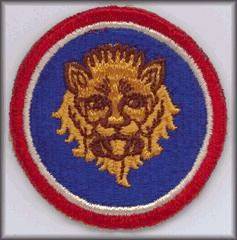|
|
After Battle Report |
|
|
|
After Battle Report |
|
16 December 1944
This date saw the biggest German attack since D-Day directed at the U.S. 1st Army, with the bulk of the attack coming at St. Vith, around which the 106th Division was deployed in defensive positions. First indication that the attack was coming was a report from K Company at 0140 that heavy mortar fire was falling in its area. The real pre-attack artillery barrage started promptly at 0540 with intensive fire all along the regiments front. At 0550 K Company saw the first enemy activity, with the infantry moving toward the regiment under cover of the artillery. By 0615, an estimated company of enemy had penetrated the K an L area.
By this time, German artillery had broken all wire communications with the battalions and with division. Only contact was by liaison officer and radio. At daylight, one squad of K Company had been forced back out of its original position and a force of enemy had penetrated to the L Company CP.. At 0810 another general bombardment was sent all along the front. A German force forged in between the 2nd Battalion on the right and the 112th Infantry and the 2nd Battalion C.O. sent a platoon of G Company to fill the gap.
Cannon Company in the meantime had been overrun and Captain Freesland, the C.O. appealed for assistance from the reserve battalion, which was under Division control. C Company was dispatched to the Winterspelt-Habescheid Road to back up Cannon Company. Other 1st battalion companies couldn‘t get up to the lines because German pressure and so set up to defend at Winterspelt. The lineup of the 1st Battalion then was, from right to left, C, B, A and Company C of the 81st engineers, part of the Regimental Combat Team. At 0900, I Company was committed in the L Company sector. L Company by this time had been scattered by the attack. By 0100, the L Company Commander. Captain Ben Bartell, had restored his company to its original lines. As the morning progressed F Company beat off an attack of 6 tanks cutting across its front; an estimated company of enemy wedged its way into L Company’s position again and K Company had reestablished its lines.
At Noon, all original positions were intact. L Company had reformed two platoons and was prepared to counterattack. I Company reverted to battalion reserve. The overall picture showed two-thirds of the regiment in action. The remainder of this first day saw the battalion holding their own against sporadic enemy attacks and against tank threats. Front line companies continued to receive intensive artillery fire.
During the first day, many acts of individual heroism were recorded. Captain Lee Berwick, 3rd Battalion S-3, was sent with a squad of men to clear the enemy from buildings in the CP.. area. Braving enemy fire, he exposed himself and called for the group in one building to surrender. Their answer was a burst of fire. He deployed his men then called on the enemy again to surrender. They raised the white flag and out of the building came two officers, 105 enlisted men and two American officers and 15 American enlisted men who had been held as prisoners.
In the 1st Battalion area at Winterspelt, Lt. Cl. Lamar A. Welch and his battalion staff were in their CP.. when they heard German voices outside the window. All dived for their weapons and raced outside. Just as they cleared the building a stick of grenades completely destroyed the CP..
Anti-tank Company had a big day, too. Staff Sergeant Rocco P. DeFelice was knocked unconscious by a shell burst. Rousing himself, he went back to his gun and promptly was wounded by another enemy shell. He dragged himself back to the gun and directed fire that destroyed two German tanks. TSgt Glenn D. Risk took over another gun by himself, doing his own loading, aiming and firing. He got a tank too. Pvt. Gilbert Thomas manned a bazooka and he also stopped a tank. Service Company at Elcherath saw its first action Sunday, when the enemy struck from around Winterspelt and surrounded the Company position. The company evacuated its area by the only possible route out, a back trail, on Sunday afternoon. Capt. Uhel Barrackman, MTO, was credited with saving two vehicles and personnel as the members of the company set up an effective rearguard action.

The Shoulderpatch